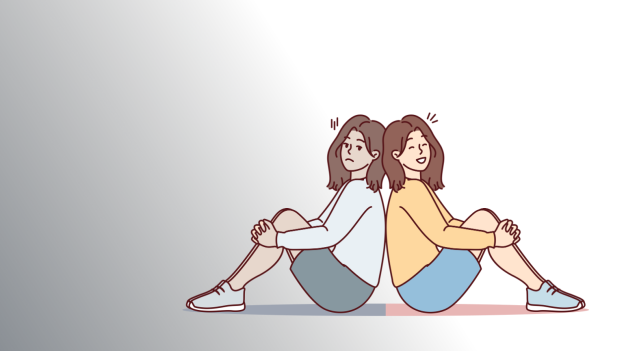Let’s talk about Bipolar Disorders
About 3.3 million Americans are affected by a bipolar disorder in any given year. Bipolar disorders are characterized by extreme highs and lows in mood and energy.
It can cause unrealistically expansive thoughts or ideas, and impulsive or reckless behavior. Luckily, both psychotherapy and medication can help one manage their bipolar disorder.
Symptoms
There are two different forms of bipolar disorder: bipolar I and bipolar II. People with bipolar I experience a maniac episode and sometimes a depressive or hypomanic episode. Those with bipolar II disorder have at least one depressive episode and at least one hypomanic episode (American Psychiatric Association, 2023).
Below you will find symptoms of mania, hypomania, and depression.
Mania
Excessive energy, activity, restlessness
Racing thoughts
Pressured speech
Extreme “high” or euphoric feelings
Easily irritated
Easily distracted
Decreased need for sleep
Unrealistic beliefs in one’s ability
Hypomania
Symptoms similar to those of mania but less severe
Depression
Persistent sad, anxious, “empty” mood
Sleeping too much or too little
Weight fluctuations
Loss of pleasure or interest in activities
Difficulty concentrating or making decisions
Fatigue, loss of energy
For more symptoms of depression, visit “Learning about Depression”.
If you or someone you know is experiencing symptoms, check your risk by taking our bipolar screening.
Treatment
Treatment will vary depending on the type and severity of bipolar disorder, but most treatments include psychotherapy, medications, or a combination of the two.
It is important to know that treatment for mental health conditions are tailored to the individual and the information presented here are just a few of the many different treatment options.
Psychotherapy
Psychotherapy is form treatment conducted by a trained and licensed therapist (i.e., psychologist, social worker, or counselor). The therapist provides supportive environment for individuals to talk openly about their mental health condition(s) and emotional challenges with someone who is objective and non judgmental. There are many different types of psychotherapy, but in general the therapist and patient work together to identify the causes of their mental health condition, develop coping mechanisms, and challenge thinking and behavioral patterns.
Medications
There are four different classes of medications that can be used to help manage bipolar disorders: mood stabilizers, antipsychotics, antidepressants, and antidepressant-antipsychotics. Finding the right medication can take some time and may require some trial and error. A medical provider will assess your situation and symptoms and decide which medications to prescribe to you (Mayo Clinic, 2022).
It is important to consult with a medical provider before taking any medications.

Resources
Looking for information, tools or resources for mental health?
Visit our online resource library, where you’ll find tools and apps to support your mental health and wellness, information about mental health and common mental health conditions, on-demand videos and trainings, interactive tools to help you build wellness and safety plans, research and reports, resources for schools and workplaces, and much more!

